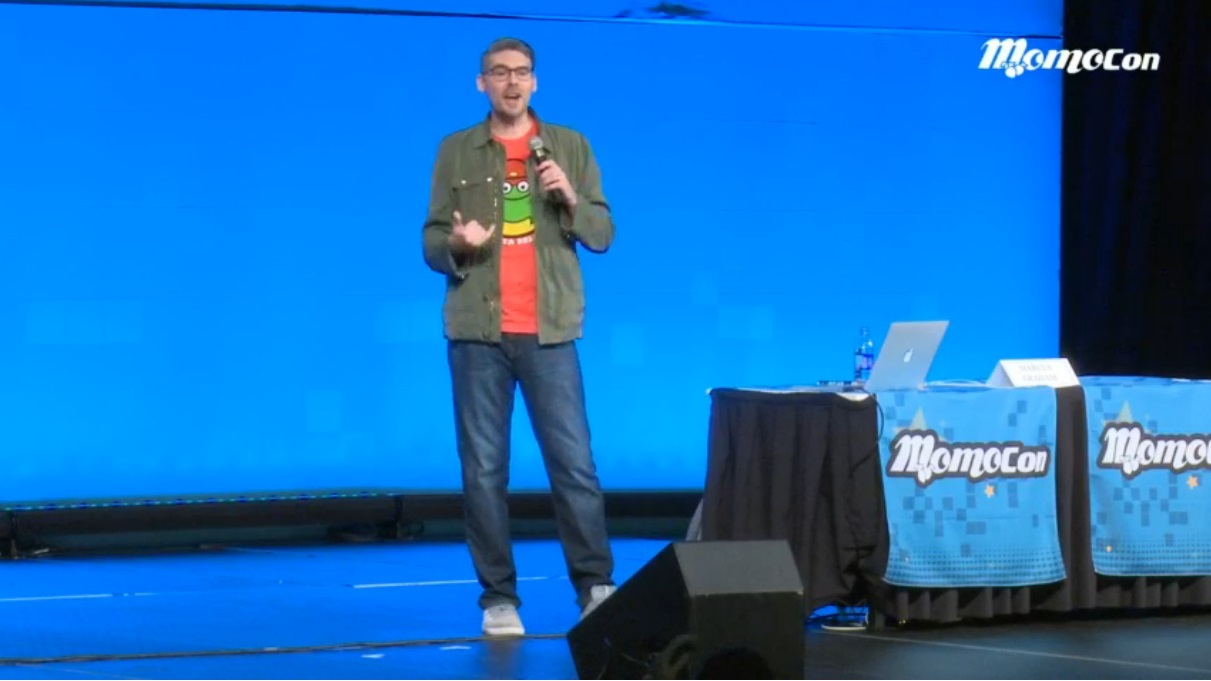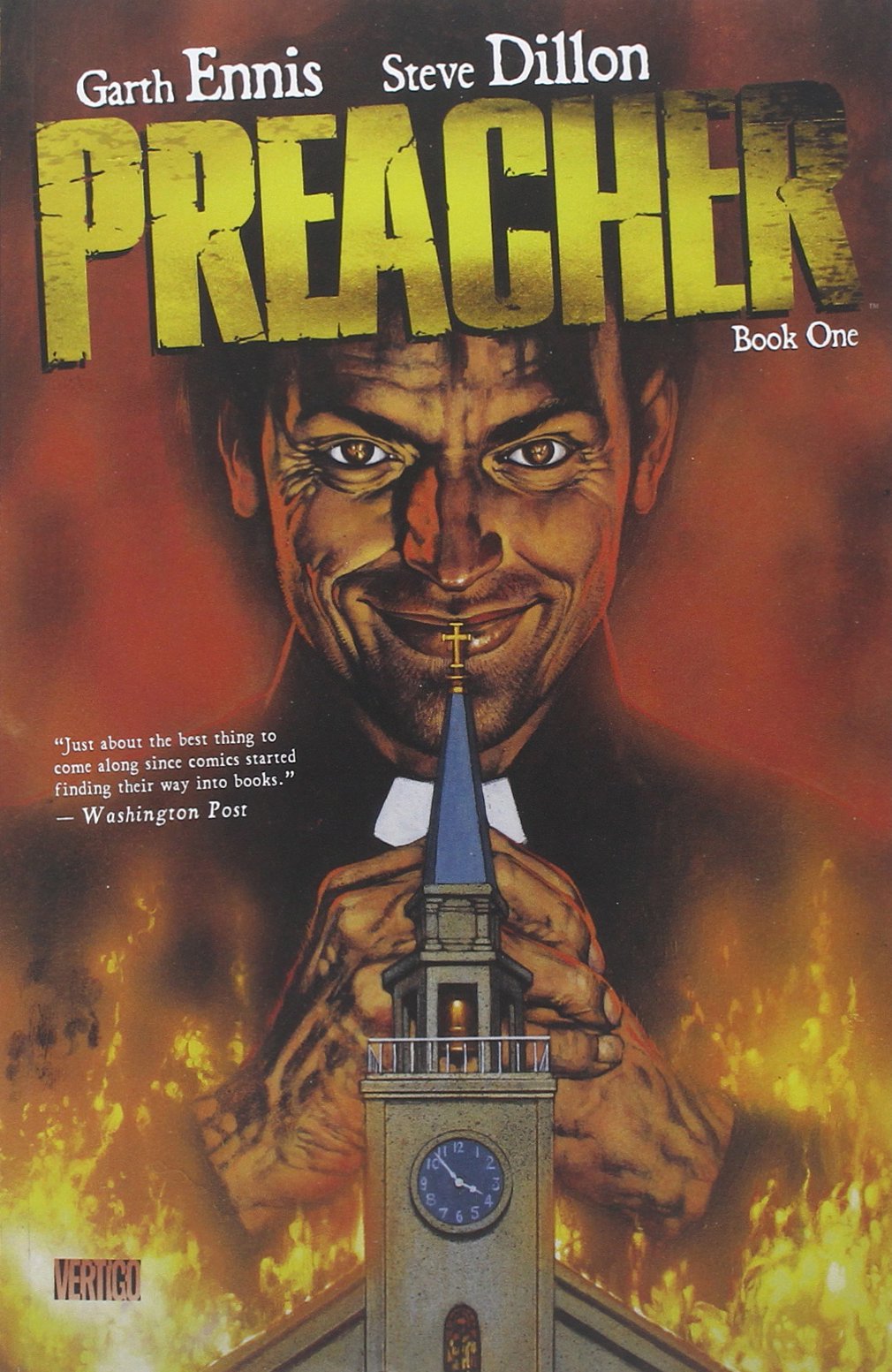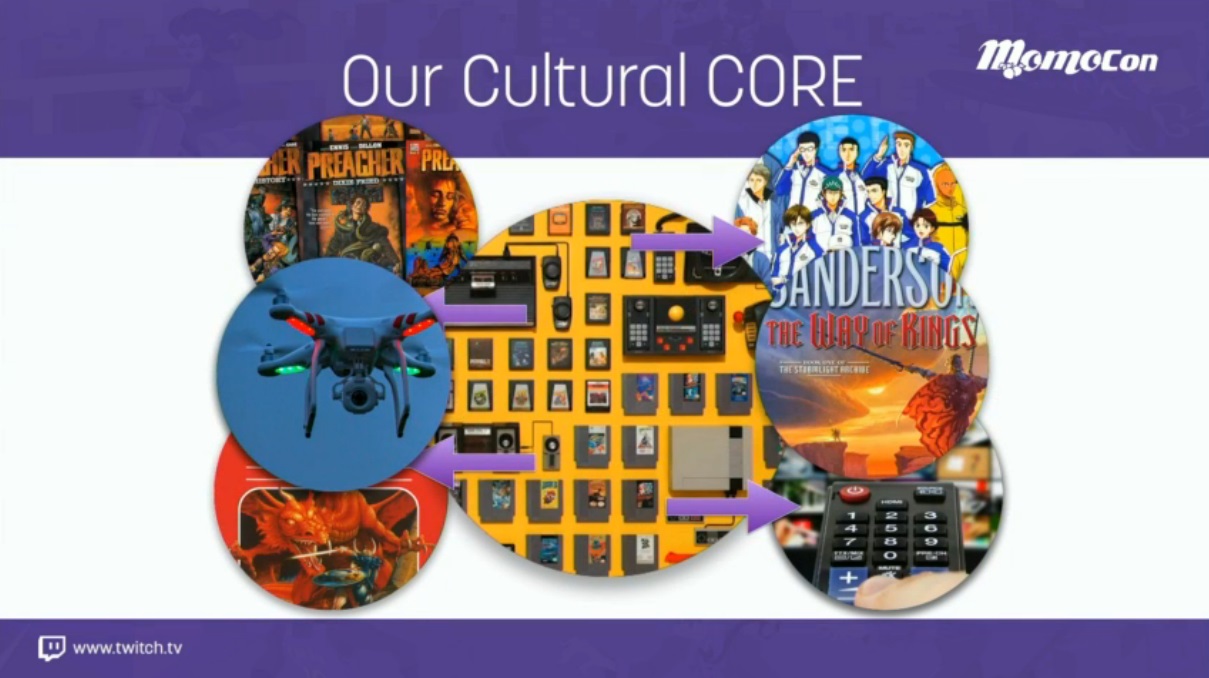Marcus “djWHEAT” Graham, the Director of Programming at Twitch, gave the keynote speech at MomoCon this year. Known for his background as an eSports commentator, djWHEAT helped make video game streaming and commentating what it is today. During his keynote, djWHEAT addressed three main topics: Geek culture, change, and being a gamer dad.
Culture and community
As he began his keynote, djWHEAT spoke about how we all have a core culture with which we identify. For example, djWHEAT identifies as a gamer. This isn’t to say that he doesn’t identify with other subcultures as well, though.
In high school, Marcus was introduced to his first subculture outside of gaming when a friend handed him a comic book. After reading more traditional superhero series such as Spiderman and X-Men, he eventually discovered Preacher. “Preacher was what really got me into comics,” said Marcus. “It’s not all about superheroes. There are crazy themes that can be explored.” From his time hanging out in comic shops he got into tabletop gaming, like Dungeons & Dragons and Shadowrun. Similarly, it was while working in a video store that he was introduced to anime.
While we all have a cultural core, we aren’t totally defined by it. We each have a multitude of subcultures that interest us within general geek culture, such as comics, sci-fi and fantasy novels, Dr. Who, etc.
Why today’s geek culture is different
“Our depth of culture today is much more significant that it was 10 years ago,” said Marcus.
Part of it is due to accessibility – think of all the ways you can find and consume culture today. Even just online, there’s Crunchyroll for anime, Netflix for TV and movies, Steam for video games, and Comixology for comics. This availability makes it incredibly easy to explore further interests.
The prevalence of online communication and interactive experiences makes it easy to spread these cultural interests across the world.
“How many of you have friends in different countries?” asked Marcus. 10 years ago, that wasn’t the case, he argued. Now, because of how easy it is to talk to and share ideas with anyone, anywhere, that has changed.
What’s more, a comic isn’t just a comic anymore. It’s a movie, a video game, a TV series. Think of The Walking Dead, its spinoffs, or even The Witcher, which started as a fantasy novel series. These transmedia properties, as djWHEAT called them, allow for these series to reach many more subcultures. Your parents, for example, might not read a comic series, but they’re absolutely devoted to the TV version.
“This is why cultural overlap is taking place,” said djWHEAT. Our culture is simply reaching more people now.
Conventions like MomoCon help spread culture even more — people from so many varying sub- (and sub-sub-) cultures attend and gather to celebrate their interests.
Isn’t Twitch supposed to be for video games?
As the Director of Programming for Twitch, a lot of people ask Marcus why they’re seeing things that aren’t quite about gaming on streams.
“If you look at Twitch like a person,” he said, “it makes sense to have different subcultures and interests, because its core isn’t ever not gaming. We identify with our core culture but dabble in subcultures every day.”
On that note, he stressed that it’s important to protect the integrity of our cultures. As representatives of gamers or comics enthusiasts, it’s up to us to be good representatives.
“We have the power to change perceptions.”
Speaking of change
Gamers have had a major impact on the video game industry over the past 15 years just because of our behavior. Think about how you find guides and reviews today. You just hop online and Google serves up pages of search results for free. Remember when you had to buy physical walkthroughs?
Gaming magazines like Nintendo Power or PC Gamer used to be the only way to get news and reviews about games. As the internet evolved, we could just hop over to one of those *other* video game websites to find the same content. Now we have blogs, YouTube and Twitch, where we can actually identify with different personalities instead of a corporate voice. You know that if a certain YouTuber hates horror games, you’re not going to look on his channel for info about the best VR jumpscares.
“You have a level of context because you know their personality preferences,” said Marcus.

djWHEATS’s “10 Things I’ve Learned About Being A Gamer Parent”
Marcus devoted the last part of his keynote to talking about raising a gamer kid as a gamer dad — something some of us may already be doing. Whether or not you have kids, it’s a good reminder about how much gaming affects us.
- Be mindful of in-app purchases (kids+games+$=bad times).
- You can teach urgency and other amazing things with gaming.
- Set a good “gamer” example. Kids pick up your habits.
- You can’t trick me like I tricked my parents! We know what save points look like.
- Don’t force games…always encourage fun. They don’t have to love the same games you do.
- Teach typing early on. They’re going to need those skills later in life.
- Watch together. Know what your kids are watching and playing.
- Get ready to explain why he/she can’t…(see Deadpool, play GTA, etc.)
- Get ready for memes! Kids love ’em.
- There will come a time…When they will beat you. When they will want to play the same games as you. When they will just want to play anything with you. Be ready.
With kids in mind, it will be incredibly interesting to see what geek culture will be like 10 or 20 years from now. Will our kids eventually be able to trick us into “one more level”? Who knows what video games will even look like 20 years from now!
What do you think of djWHEAT’s ideas about geek culture or parenting? Let me know in the comments!









Published: Jun 30, 2016 11:34 am